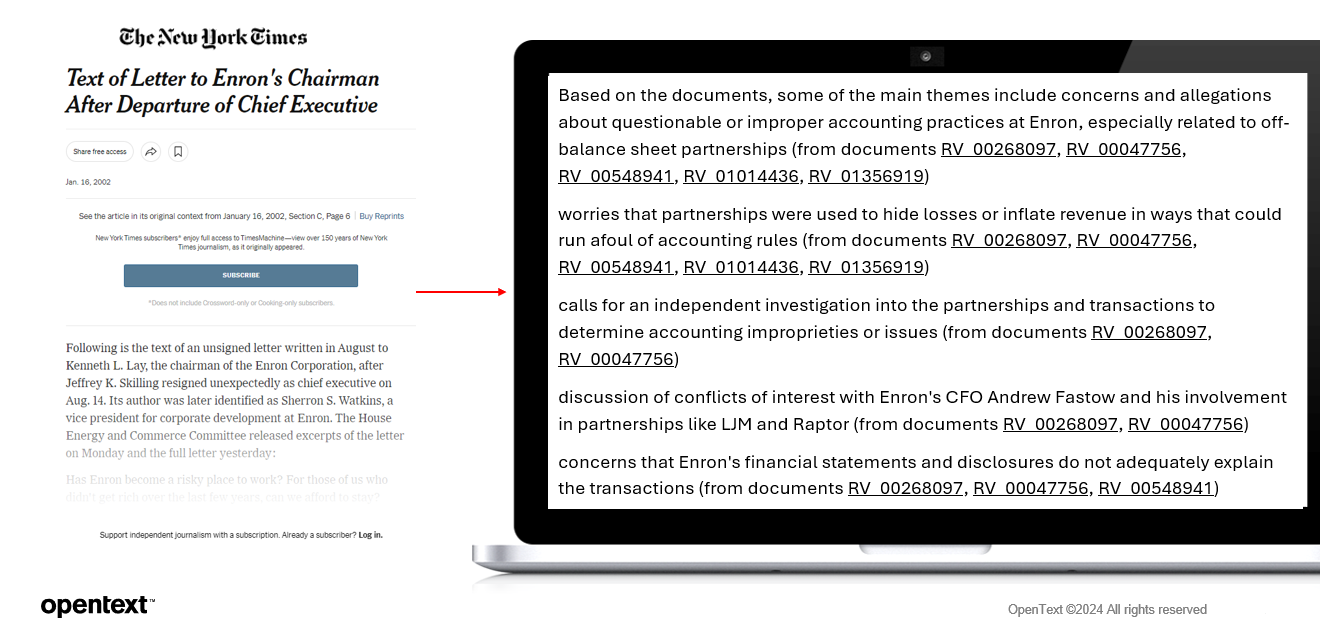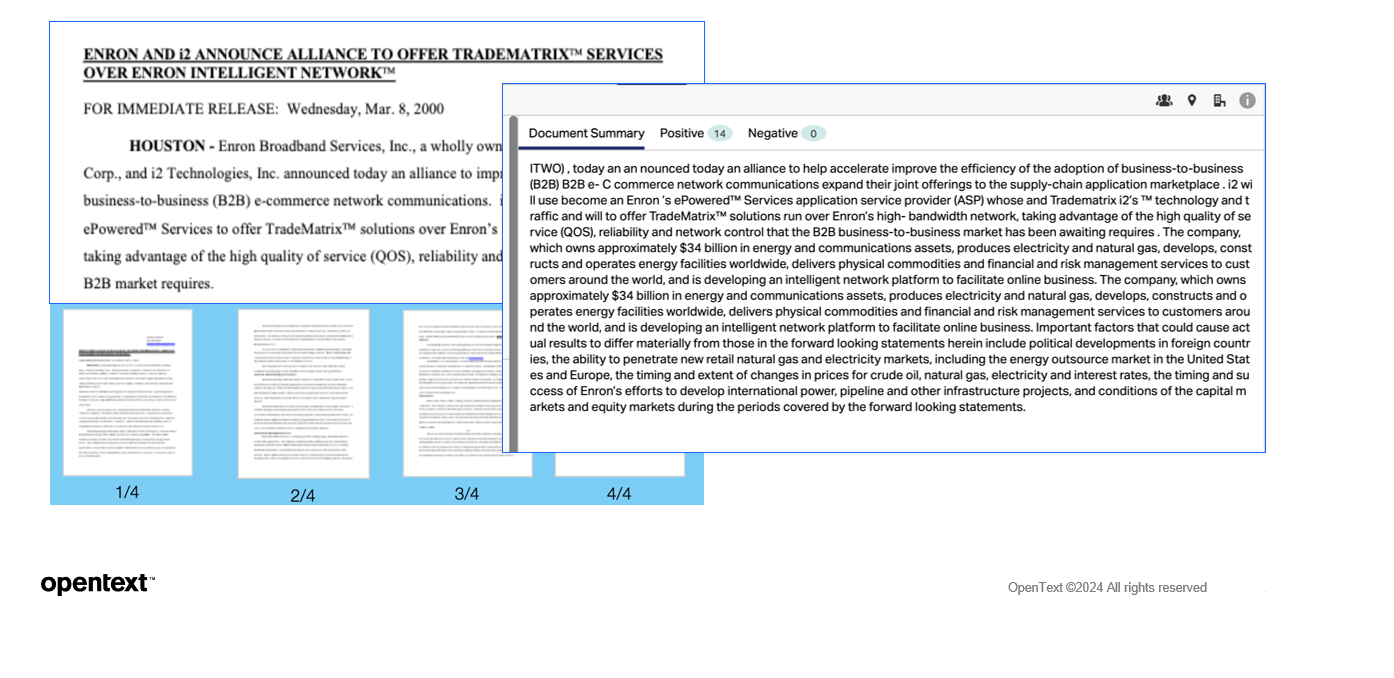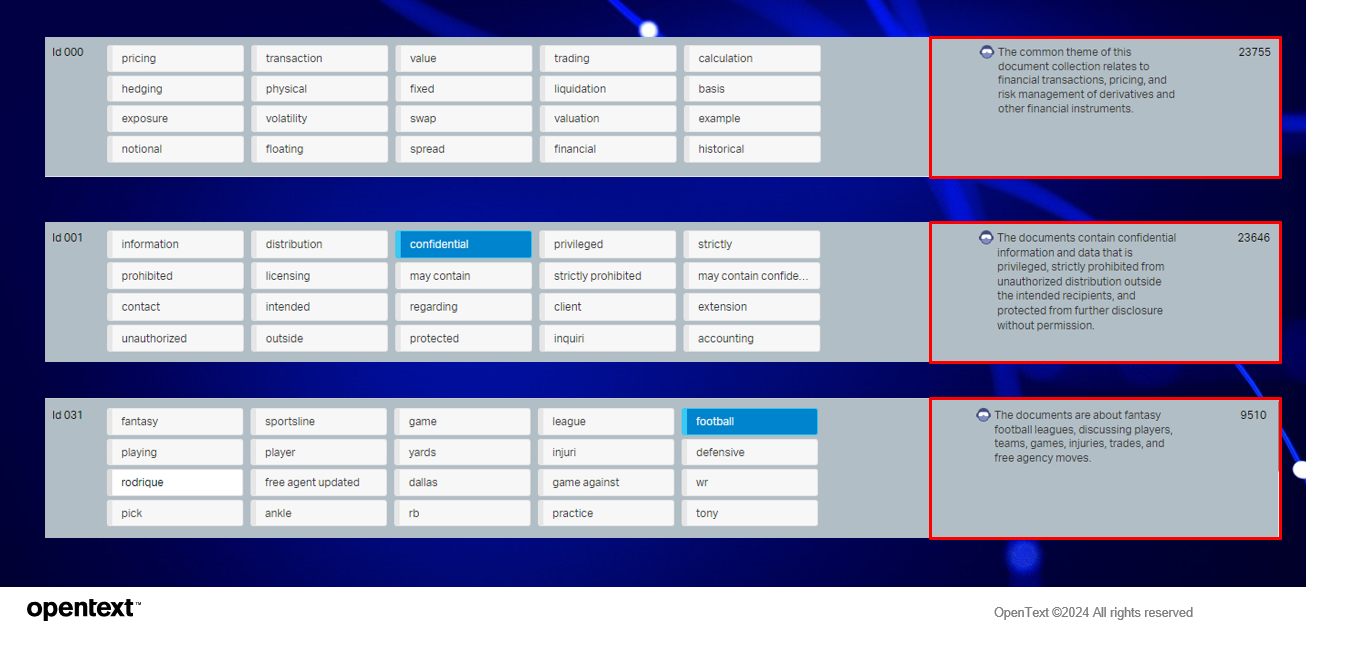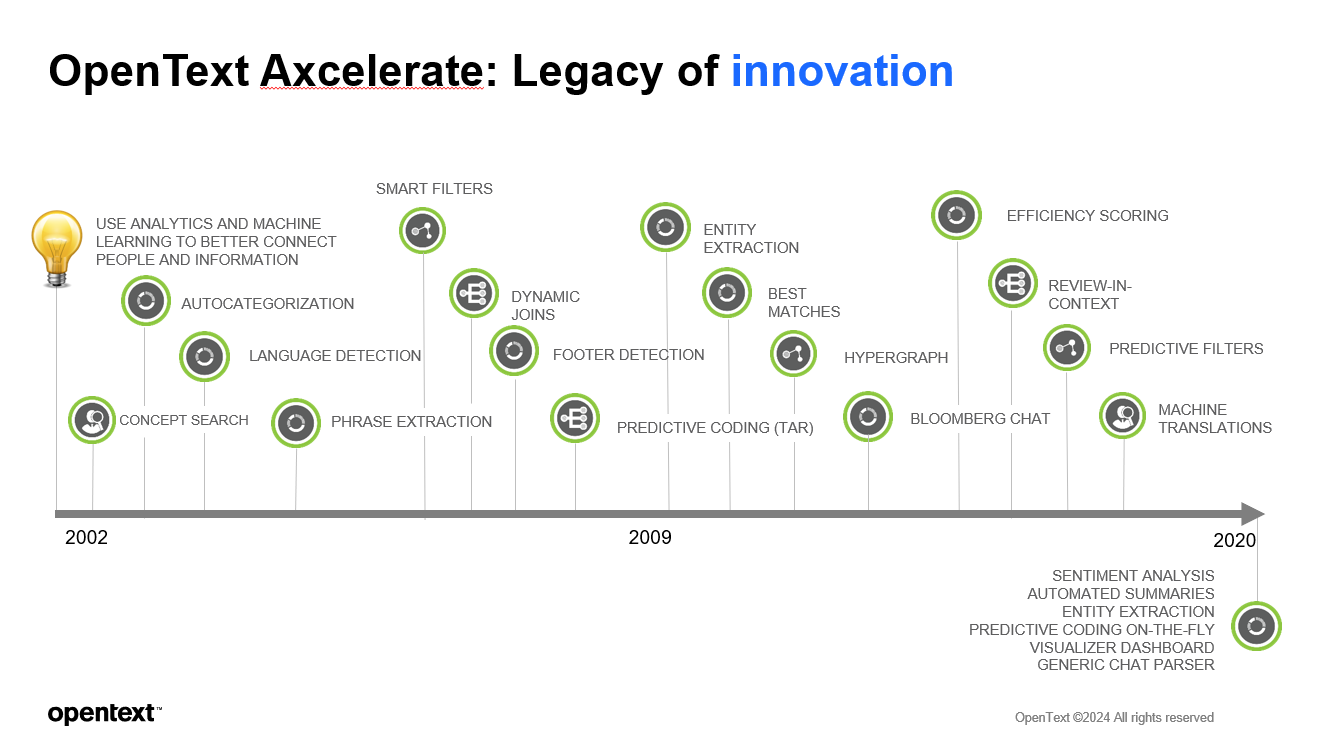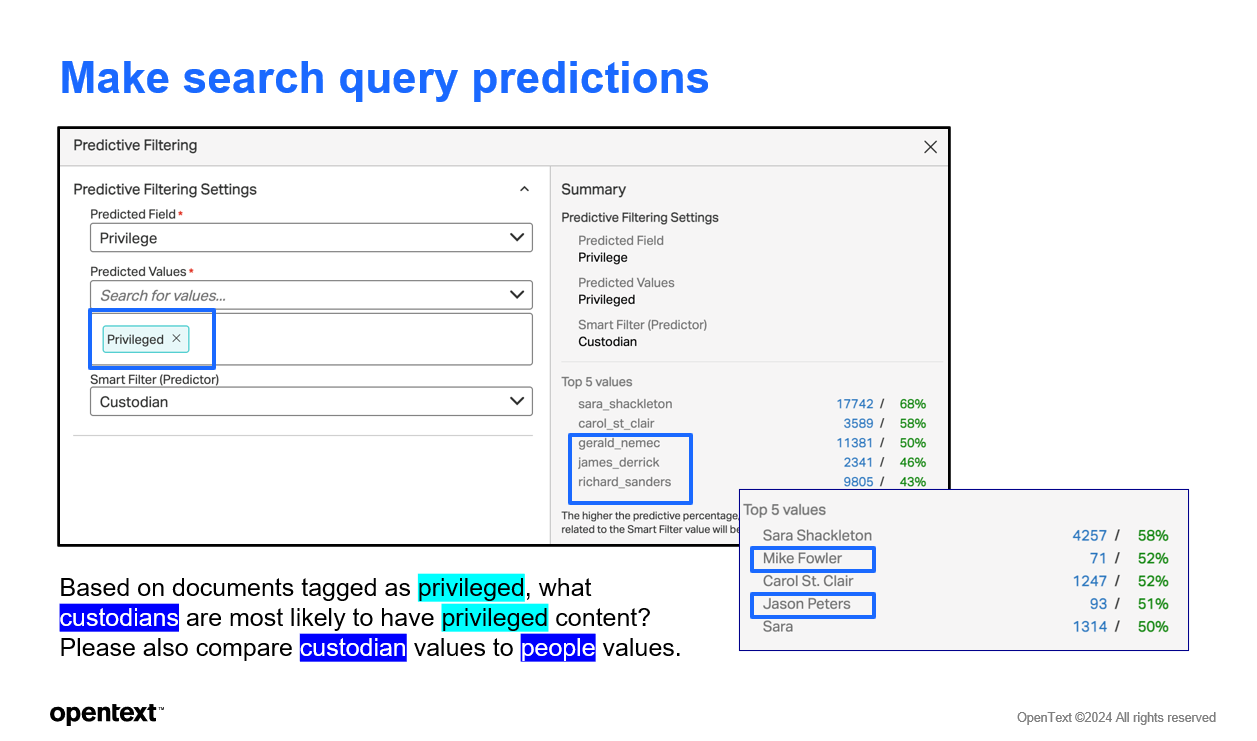OpenText Legal Tech Aviator: The Sky’s the Limit
Introducing OpenText Legal Tech Aviator
OpenText Aviator is a suite of AI solutions by OpenText. Specifically, OpenText Legal Tech Aviator is relevant to the legal industry and was released by OpenText on 15 April 2024. Unlike other generative AI (GenAI) models which utilise OpenAI’s Large Language Models (LLMs), OpenText utilise Amazon Bedrock (AWS) LLMs to deliver this GenAI solution.
What does it do?
OpenText Aviator is embedded into the company’s eDisclosure software, widely known as Axcelerate. This AI solution provides legal teams with summaries of documents contained within Axcelerate and makes the document review process more efficient by giving legal teams a quick insight into their documents.
In addition, Axcelerate with Aviator can generate summaries under each concept group label. This means that reviewers will have more information about why a set of documents falls within a certain concept group at a glance.
Let’s delve into each application in further detail.
Key Document Summaries
With a single click, users can create enrichments of multiple documents at once. These enrichments include a summary of each document, viewable alongside the document in Axcelerate.
Additionally, users can drop a file such as a Review Briefing Note or section 1A of the Disclosure Review Document into Aviator and obtain a summary on the entire case which contains references to the specific documents in the workspace.
Essentially, document summaries provide the review team with the information and background they need to begin their review and tag their documents at a faster pace than usual.
For example, a whistle-blower letter on the Enron case has been uploaded into Aviator and a summary has been generated, along with references to documents in this Axcelerate workspace which are potentially relevant to this issue.
In this example, we have a 4-page document which has been summarised in a short paragraph by Axcelerate with Aviator.
A reviewer now has insight into the content of this document without needing to read all the pages and can make decisions more efficiently and accurately.
Concept Group Summaries
This is a unique feature which you may not find in another software provider’s platform.
A concept group is commonly used to identify groups of documents which relate to similar topics. An example of this includes documents that relate to football, but which do not necessarily contain the word ‘football’ at all. Axcelerate generates ~70 concept groups when it has been run.
Axcelerate with Aviator goes further and summarises each concept group label with a short paragraph explaining why a group of documents falls within a concept group. This means the review team can make decisions at an early stage about whether or not they need to review a specific group of documents.
In this instance, there are three concept groups that have similar keywords / key concepts.
Each group is accompanied by a summary which is located on the right-hand side. These summaries provide effective explanations of why these particular documents have been grouped together and help to contextualise those themes.
OpenText’s History with AI
Since 2002, OpenText have provided a wide variety of AI solutions within Axcelerate from their Magellan platform, which is the brand name for their suite of AI solutions, prior to the release of GenAI and LLMs.
It began with textual analytics and machine learning models which include concept searching, predictive coding, entity identification, sentiment analysis and much more.
As the platform evolved, it incorporated more advanced features.
Interestingly, Axcelerate contains a search query prediction feature which can be used to make privilege predictions, among other things. In this instance, the model utilises machine learning algorithms to predict which custodians are more likely to contain privileged material in the data set based on documents that have already been reviewed for privilege.
It enables the legal teams to prioritise certain custodians when new documents require review and to choose the most suitable reviewers for privilege review. It can also be used as a QC checking mechanism to ensure the review has been conducted accurately, by comparing the model’s predictions with the review team’s decisions. Privileged documents should not be inadvertently disclosed as a result.
Upcoming Releases
OpenText are currently working on a new feature called Review Aviator with Prompt Studio. This will allow Axcelerate users to enter prompts and automate the first-level review stage based on relevance or other categories of tagging. Legal teams will save valuable time and costs as a result.
Moreover, Prompt Studio will provide users with a cost estimate for leveraging LLMs before executing a job within Axcelerate. This feature aims to offer users greater control over their resources and budget which will make the platform more cost-effective.
Conclusion
Axcelerate contains a range of AI tools which were first introduced in 2002. The search query prediction model, in particular, has not yet been adopted by other software providers who have started to incorporate GenAI solutions in their platforms. The search query prediction model will look beyond the reviewed population and find documents that should also be reviewed within the workspace. OpenText believe that supervised machine learning may still be better suited for some tools and features than GenAI, and are therefore taking a measured approach to how and when GenAI is incorporated into their Axcelerate platform.
The new solutions that have been released by OpenText as part of their Legal Tech Aviator suite will no doubt be embraced by all the Axcelerate users. In particular, there is a strong desire among the legal profession for GenAI to be utilised to summarise legal documents so this should be a very successful tool.
Furthermore, the unique application of concept group summarisation demonstrates that GenAI is versatile and can be used in many different ways. With this offering, OpenText have identified an area which they believe will enhance their users’ experiences.
Finally, the forthcoming release of Prompt Studio promises to offer Axcelerate users even more advanced capabilities and should give them more to get excited about. OpenText’s transparency on costs is commendable and this will contribute to their success in effectively implementing GenAI tools within Axcelerate as users can make informed decisions before they decide whether to leverage the LLMs.

